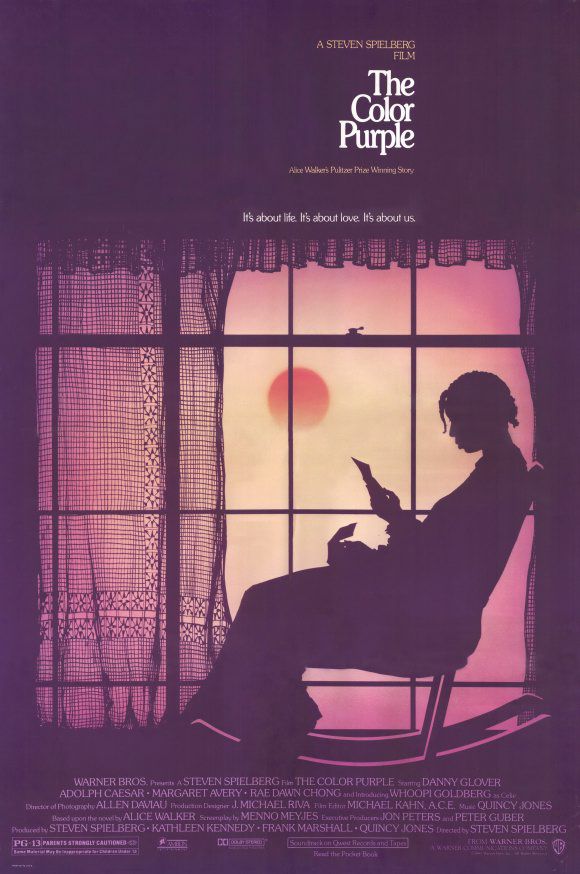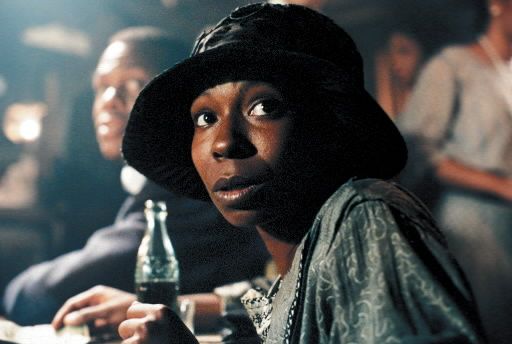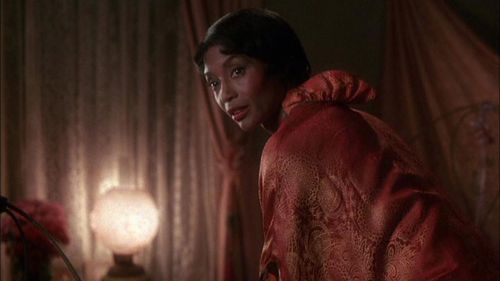The
Color Purple
1985
Director: Steven Spielberg
Starring: Whoopi Goldberg, Danny
Glover, Margaret Avery, Oprah Winfrey
When
asked about my favorite Spielberg film, this one wouldn’t come close, but the
dang thing was nominated for eleven (!) Oscars.
He was about ten years into his career as a major Hollywood director,
and apparently, that means that it’s time to make a “serious movie” about “serious
things” (with lots of “quotation marks”).
So Spielberg reached for Alice Walker’s novel in order to “prove
himself.”
The
rather meandering story manages to focus mostly on Celie (Goldberg in her first
significant role), a beaten down young woman living in the Deep South at the
turn of the last century, essentially auctioned off by her abusive and
incestuous father to an abusive husband Albert (Glover). Celie’s one source of comfort is her sister
Nettie, so of course, she is parted from Nettie. Celie lives life as a doormat, watching as
her husband fawns over his lover Shug (Avery), and meeting strong-willed Sofia
(Winfrey), who marries Albert’s son.
Probably
one of the biggest compliments I can give this film is the fact that despite
the fact that it clocks in at just over two and a half hours, it managed to
keep me engaged throughout. I didn’t
completely love this movie, but it absolutely succeeded in drawing me in to its
world. Despite the growing pains I think
he exhibited here, Spielberg is a great storyteller, and he knows how to reel
in his audience. He knows how to bend
you and twist you and, well, manipulate you into having a roller coaster of an
experience; this film is no different.
If nothing else, it was a diverting way to pass a handful of hours.
There
is no doubt who directed this film; Spielbergian touches are all over the
place. The problem is, classic little
Spielberg touches of warm family humor don’t jive terribly well with this
particular story. The end result is a
valiant but schizophrenic effort. Just when
you’re about to suffocate under a heap of crippling emotional turmoil, there’s
a funny little scene of Danny Glover trying to cook breakfast by using kerosene
to heat the oven. It felt as if
Spielberg couldn’t commit to the intensity and raw nature of Celie’s story, so
he had to find ways to lighten the mood.
Problem is, though, in a weird way, I didn’t really want Celie’s story
lightened. If I wanted a feel good
drama, I wouldn’t pop in a film that is upfront about familial abuse and incest
in the first ten minutes. But Spielberg
being Spielberg, he can’t help himself, and every chance he gets, he creates
some rosy little pocket of pure nostalgic warmth, right down to the
heavy-handed sentimental flower patch bookends.
I
admit right now to not having read Alice Walker’s novel on which this was
based, but I felt as though Celie’s ultimate uprising felt more than a little
out-of-nowhere. This was a woman so
completely crushed under others’ feet that emotional freedom seemed
impossible. Don’t get me wrong, I wanted
Celie to break free from her bonds, but so many of them seem to be of her own
making that it would take more than a stack of letters to change things. I had problems buying the conclusion of the
film.
Probably
one of the best things about this movie were the stalwart performances from all
involved. Whoopi Goldberg is very good,
and she well-deserved her Oscar nomination for this role. There are so many side stories swirling
through the film, but ultimately this movie is about Celie, and Goldberg
handles that responsibility with aplomb.
She is far different than the Goldberg she became in subsequent decades
in the ‘biz. Quiet, subtle, and
underplaying, even in her scenes of strength; trust me, this is *not* the
Whoopi Goldberg you are used to. Danny
Glover is a believable monster as her husband, but he is undercut by Spielberg
choosing to alternately playing him as a fool.
Glover does both well, but the two seem incongruous with one
another. He’s an ogre! He’s the village idiot! He’ll kill you! He’ll do a pratfall! Well, which is it? I suppose the two can coexist, but it felt
more like Spielberg couldn’t make up his mind.
Oprah Winfrey admirably plays a strong then cowed then strong black
woman, but her character’s story was one of those that seemed to distract, more
than anything, from the central flow of the movie. Margaret Avery as Shug was delightful, making
everyone fall in love with her wherever she went. I will say, though, that it’s difficult
keeping track of her character; she enters, disappears, reappears, all with
different men swirling around her. By
the time part of her story line ended, I was a bit confused about her
relationship with, well, everyone.
Ultimately,
this movie smacks of Spielberg trying to legitimize himself. “I make great fun joyrides,” he thought, “but
if I ever want to win an Oscar, I need to make something ‘serious.’” So he made The Color Purple. It’s serious, but somehow not serious
enough. I understand both why this was
nominated for Best Picture, but also why it didn’t win. 1001 Movies You Must See Before You Die
says, in its entry for this film, that Spielberg bit off more than he could
chew. I couldn’t agree more; this film
has more than a touch of the schizophrenic to it. Still a great Spielberg ride, though, I must
admit.
Arbitrary
Rating: 7/10.


